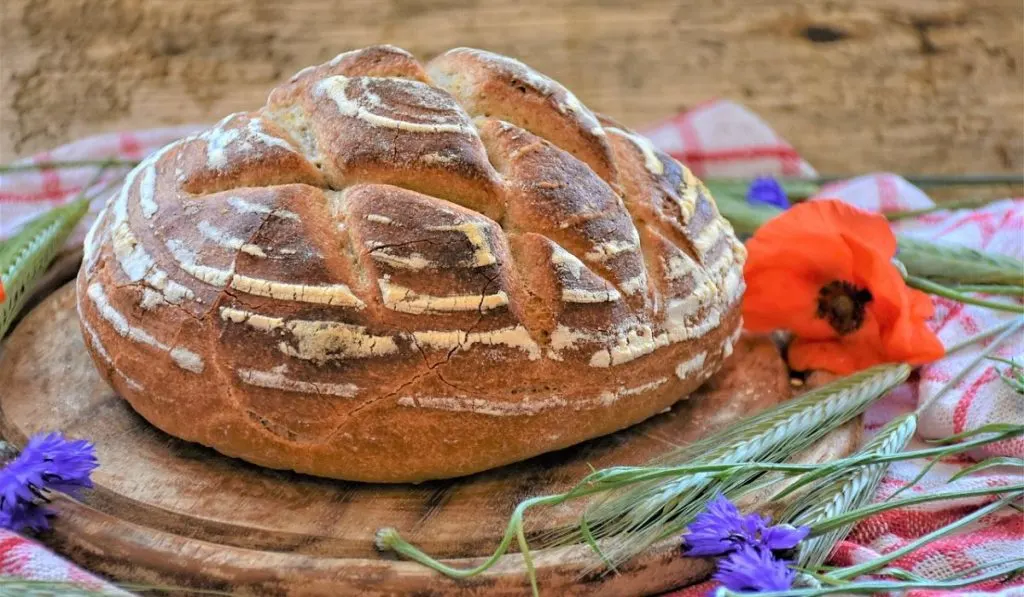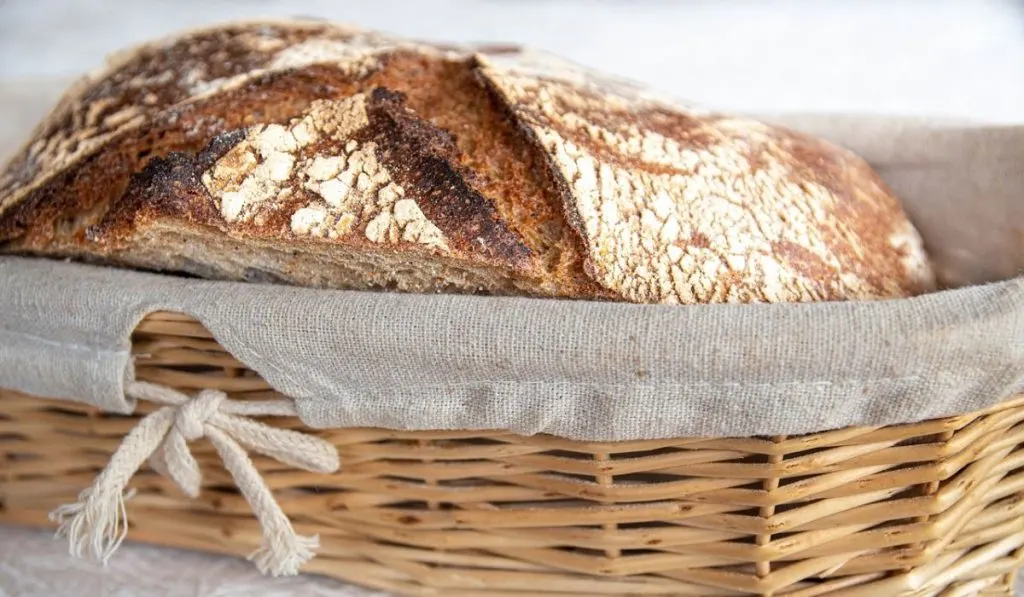
Do you ever wonder if sourdough bread can taste just as delightful without the added sugars? In a world increasingly aware of the health impacts of sugar, many baking enthusiasts and health-conscious eaters are turning towards sugar-free options. However, the question remains: Can you really achieve that beloved sourdough tang and texture without sugar? Let’s explore how you can enjoy this staple of artisan baking, ensuring both a satisfying taste and a healthier loaf.
TL;DR
- Benefits of eliminating sugar from sourdough bread
- Key techniques for sugar-free sourdough success
- Insider tips and personal insights from seasoned bakers
- Impact of sugar-free sourdough on health and digestion
- Exciting new flavor combinations and recipes to try at home
The journey towards baking sugar-free sourdough bread brings us back to the essence of traditional baking. Here’s why making the switch is beneficial not only for flavor but also for health:
Returning to Roots: The Traditional Composition
Authentic sourdough is a model of simplicity, traditionally made from just flour, water, and salt. This mixture, left to ferment naturally, captures wild yeasts and bacteria that cause the bread to rise. By omitting sugar, you allow the pure flavors of the fermented grains to shine, offering a richer culinary experience that’s closer to what our ancestors enjoyed.
Enhancing Flavors Naturally
- Balanced Tang: Sugar can mask the natural tangy profile of sourdough. Removing it lets the subtle, complex flavors developed during fermentation come forward.
- Grain Highlights: Each grain’s unique taste is more pronounced without the sweetness of sugar, providing an authentic sourdough experience.
Health Benefits of Sugar-Free Sourdough
- Lower Caloric Intake: Eliminating sugar cuts unnecessary calories from your diet, making sourdough a more suitable option for weight management.
- Reduced Glycemic Impact: Sugar-free sourdough has a lower glycemic index, beneficial for managing blood sugar levels, especially important for those with diabetes or prediabetes.
- Improved Digestibility: The natural fermentation process of sourdough improves the digestibility of grains, and without sugar, the bread is less likely to cause blood sugar spikes.
Mastering the Craft: Tips for Perfect Sugar-Free Sourdough
To craft the perfect loaf of sugar-free sourdough, consider these expert tips that focus on the fundamentals of artisan baking:
Optimize Your Starter
A robust starter is the heart of great sourdough. It should be vibrant and active, which can be achieved through:
- Regular Feeding: Maintain a consistent feeding schedule to keep your starter healthy and ready for baking.
- Temperature Control: Store your starter in an environment with stable temperature to promote consistent activity and fermentation.
Hydration Matters
Adjusting the hydration levels in your dough can vastly affect the final product:
- Water Ratio: Higher hydration can lead to a lighter crumb and more pronounced flavor, enhancing the natural sourdough characteristics.
- Texture Adjustments: Experiment with different hydration levels to find the perfect balance for your preferred texture.
Experiment with Flours
The choice of flour can transform your sourdough:
- Whole Grains: Incorporating whole grain flours like rye or whole wheat adds depth and a nutrient boost.
- Flavor Diversity: Mix different flours to discover unique taste profiles that complement the natural sourness.
Patience is Key
The fermentation process is critical to flavor development in sourdough. Longer fermentation times allow for:
- Deeper Flavor Development: Extended fermentation helps develop a more complex flavor profile.
- Improved Digestibility: Longer fermentation breaks down gluten and antinutrients, making the bread easier on the digestive system.

Health and Digestion: The Unseen Benefits of Sugar-Free Sourdough
Choosing to eliminate sugar from your sourdough recipe brings significant health and digestive benefits, enhancing both the nutritional value and the digestibility of the bread:
Caloric Reduction and Digestive Health
- Lower Calorie Content: Removing sugar cuts unnecessary calories, making sourdough a healthier choice for those monitoring their caloric intake.
- Enhanced Gut Health: The natural fermentation process increases the presence of beneficial bacteria, improving gut health and aiding digestion.
Improved Nutrient Bioavailability
By foregoing sugar, the bioavailability of the nutrients in the grains is enhanced. This means that your body can absorb more of the vitamins and minerals present in the bread, such as B vitamins and iron, which are crucial for energy production and overall health.
Probiotic Advantages
Sugar-free sourdough acts as a natural probiotic, as the fermentation process fosters an environment rich in beneficial bacteria. These probiotics help in balancing the gut microbiome, essential for a healthy digestive system and overall wellbeing.
New Horizons: Exploring Sugar-Free Sourdough Recipes
Embark on a flavorful journey into the world of sugar-free sourdough baking. These innovative recipes not only offer unique tastes but also boast significant health benefits, challenging traditional baking norms and inspiring bakers to explore new culinary landscapes:
Seeded Multigrain Sourdough
This hearty loaf blends diverse grains and seeds for a nutritionally rich and flavorful bread. Perfect for those looking to enhance their dietary intake while savoring the robust textures and flavors of sourdough.
- Ingredients:
- 1 cup sunflower seeds
- 1 cup flaxseeds
- 1 cup rolled oats
- 3 cups whole wheat flour
- 2 cups water (adjust based on desired dough consistency)
- 1 cup sourdough starter
- 1 teaspoon salt
- Method: Combine all dry ingredients before mixing in the water and starter. Allow to autolyse for 30 minutes, then fold the dough over several times. Let it ferment for 12-14 hours, shape, and bake at 450°F for 30-35 minutes.
Rye and Spelt Sourdough
Dive into the depths of flavor with this loaf made from ancient grains. The combination of rye and spelt offers a full-bodied taste and enhanced fiber content, making this bread not only delicious but also nutritious.
- Ingredients:
- 2 cups rye flour
- 2 cups spelt flour
- 2 cups water
- 1 cup sourdough starter
- 1 teaspoon salt
- Method: Mix rye and spelt flours with salt, then blend in the starter and water to form a dough. Ferment for a slow rise of about 16-18 hours, fold gently, shape, and bake at 420°F for 40 minutes.
Cinnamon and Walnut Sourdough
Enjoy the aromatic sweetness of cinnamon and the rich texture of walnuts in this unique loaf. It’s a perfect combination of healthful ingredients and delightful flavors, ideal for a special breakfast or snack.
- Ingredients:
- 3 cups all-purpose flour
- 1 cup walnuts, chopped
- 2 teaspoons ground cinnamon
- 2 cups water
- 1 cup sourdough starter
- 1 teaspoon salt
- Method: Mix flour, cinnamon, and salt thoroughly. Add chopped walnuts, then incorporate the sourdough starter and water. After an initial rest, knead lightly and allow to rise for about 12 hours. Shape the loaf and bake at 425°F for about 35 minutes.
Expanding Your Baking Horizons
These sugar-free sourdough recipes are just the beginning. Venturing beyond traditional ingredients and techniques, you can explore a world of flavors and textures. Incorporate different grains like barley or quinoa, seeds such as pumpkin or sesame, and natural spices like turmeric or cardamom to create your own unique loaves. Sugar-free sourdough is not just about subtraction—it’s about creative exploration and celebrating the natural, inherent flavors of the ingredients.
Conclusion
Whether you’re a seasoned baker or a curious newbie, embracing sugar-free sourdough bread can transform your baking experience and lead to healthier, more flavorful results. The journey to mastering sugar-free sourdough is not just about cutting out a sweetener—it’s about rediscovering the art of traditional baking and enjoying bread that’s as good for the body as it is for the soul.
FAQs
What makes sourdough bread rise if there’s no sugar?
The natural fermentation of the starter, which includes yeast and bacteria, allows sourdough bread to rise without the need for added sugars.
Can sugar-free sourdough bread taste as good as traditional recipes?
Yes, many bakers prefer the more complex flavor profile that comes from a well-crafted sugar-free sourdough loaf.
Is sugar-free sourdough bread better for weight management?
Yes, by eliminating added sugars, this bread can be a better option for those looking to reduce calorie intake without sacrificing taste.
How long does it take to make sugar-free sourdough bread?
It usually takes about 18 to 24 hours, including prep and fermentation time, depending on environmental factors.
Are there any special tools required for baking sugar-free sourdough?
Basic baking tools like a scale, mixing bowls, a dutch oven, and a proofing basket are sufficient.
Join Us and Transform >
Don’t Be an Amateur! Master the Art of Sourdough Bread!




Leave a comment